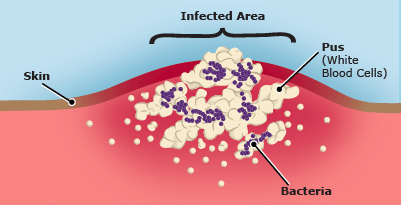How do I know if my surgical incision is infected?
- David Simmons, PT, DPT
- Jul 14, 2020
- 3 min read
So, your surgery is done and now is the time to focus on rehab and getting back to normal strength and range of motion. Following some surgeries, rehab progress can be slowed by surgical incision site infection (SISI). Prior to surgery or post-surgery, it is important to have some knowledge on exactly what surgical site infection is and some signs/symptoms of it so that you can catch it early. It is important to know that if a surgical site does become infected, do not panic, it will be ok and can be treated with medications. That being said, the sooner you let your Doctor know the better.

While SISI’s are rare (2-5% of surgeries performed), any time the skin is cut open, there is a risk of infection. While infections can be treated with medications such as antibiotics, it is important to spot them early so your Doctor can start to treat it as soon as possible. Typically, SISI’s occur within 30 days of the surgery being performed, but can happen up to 1-year post surgery (especially if an implant was used such as total knee/hip).
Signs and symptoms that may indicate infection:
Redness: it is common after surgery to have skin discoloration around the wound, but this is usually colors associated with bruising such as yellow/purple. Prolonged redness around the incision site may mean an infection is present.
Fever: Technically a fever is considered any temperature >98.6 degrees F; for infection, it is typically a temp >100 degrees F for more then 24 hours.
Acute Pain: It is common to have pain around an incision following surgery, but usually you can find relief from this pain by resting, elevating, icing, etc. If you are unable to get relief from pain for >24 hours, this may be a sign of infection. As days pass since surgery, you should notice a gradual decrease in pain, however, if infection is present you may notice pain getting worse or not getting better in many cases.
Warm to the touch: this goes hand in hand with a fever; when an infection is present, the incision and area around it will feel abnormally warm compared to other skin on your body.
Increased swelling: This can be difficult to determine because after surgery there is usually increased swelling around the body part where surgery was performed. With that being said, swelling should start to improve as you increase your mobility, are elevating and icing, and performing exercises given to you by your physical therapist. So, if you feel like swelling is not decreasing or it is increasing, this may be a sign of infection.
Pus/Increased Drainage: Pus from an infected wound is usually yellow, clear or green in color, may have streaks of blood in it, and is often foul smelling. Any drainage from an incision should be reported to the surgeon and their team.
Usually with a surgical site infection, more than 1 of the symptoms listed above will be present. If that is the case, it is advised that you contact your Doctor immediately. If unable to contact your Doctor or their team it may be advised to go to the ER or urgent care to get the wound checked out.
Tips on how to prevent surgical site infections:

Limit the amount that you touch the surgical incision and the skin around the site. If you do have to touch the area, make sure that you wash your hands thoroughly with soap and water before.
Prior to discharge from the hospital, make sure you fully understand your Doctor’s instructions regarding bandage/dressing changes. All incisions will leave the hospital with a covering, but all surgeons usually have different time frames for changing bandages and when bandages/coverings no longer need to be used.
When changing bandages, make sure to monitor your incision for any signs/symptoms listed above and ensure that hands have been cleaned by person changing the covering.
Allow steri-strips or other temporary bandages to fall off naturally to limit contact with incision.
Avoid shaving skin around incision (or over incision) for first couple of months after surgery.
Once you have received an ok from your Doctor that bandage is no longer needed, ensure that you clean the site daily using soap and water.
Notify your doctor
Again, if you think you are having any signs/symptoms of surgical site infection, it is important to notify your Doctors office immediately so that they can check it out ASAP and get you started on the necessary medications.






